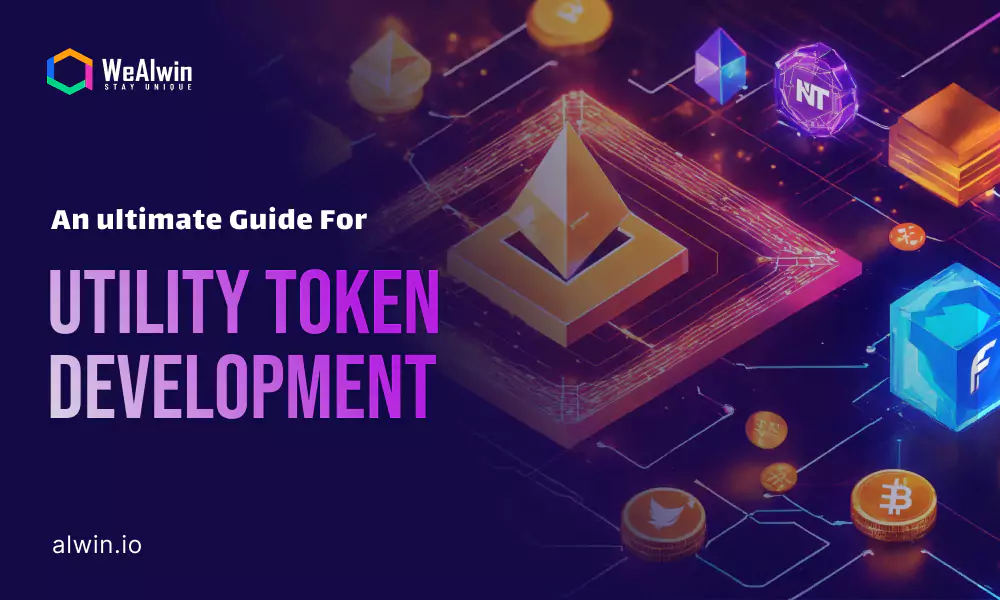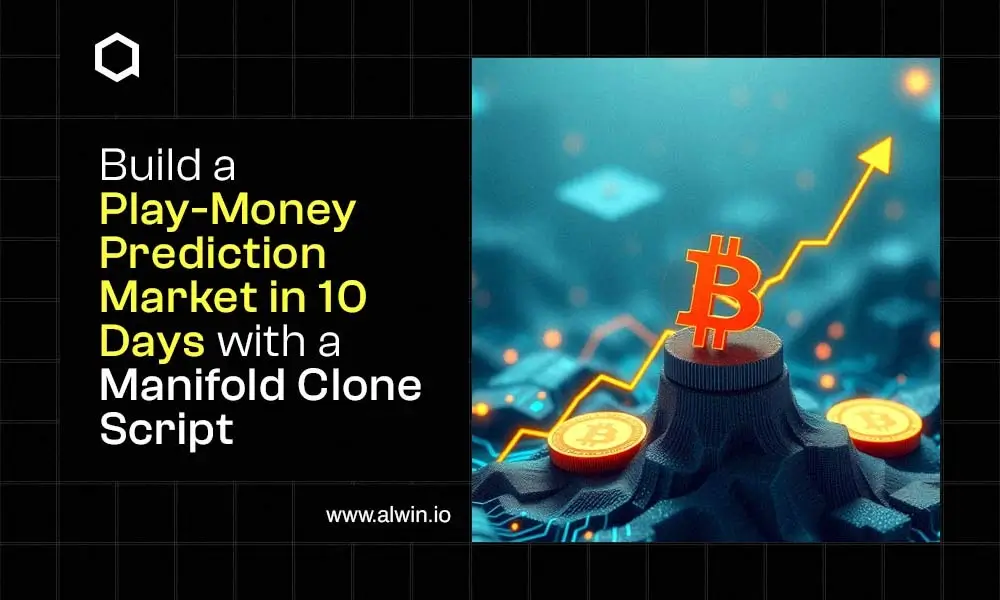Utility token development is creating digital assets used within an ecosystem that is built on blockchain to access specific services or products. These tokens are designed & developed to have specific use cases to Access, participate, and contribute to the network. Most startups create utility tokens for fundraising, engaging users, and enhancing platform development. These tokens help startups to build vibrant communities and incentivize participation. This article gives a detailed explanation of utility token development and its benefits and strategic insights
Benefits of investing in utility token development
The benefits of investing in utility token development include:
Secure Platform:
Utility tokens allow the creation of a secure platform where users can interact with each other, offering rewards and incentives for using the token. This enhances the security, transparency, and efficiency of the platform and its services.
Innovation:
Utility tokens enable innovation within the platform by allowing users to access new capabilities and functionalities. This appeals to more investors and users looking for innovative solutions.
Reward Users:
Utility tokens work as a mechanism for customers who contribute to the platform in many ways. It can encourage personal engagement, loyalty, and retention, creating fantastic feedback that increases the performance of the platform.
Align Interests:
Utility tokens can align the interests of numerous traders and stakeholders within the platform. By protecting tokens, they could benefit from the diverse network consequences.
Fund Deployment:
Utility tokens help elevate finances for the improvement and maintenance of the platform. The platform can appeal to traders interested in its vision by issuing tokens in Initial Coin Offerings.
Liquidity:
Utility tokens can be traded on various cryptocurrency exchanges, making them a liquid investment option. Holders can buy and sell these tokens as per their convenience, without having to wait for the project to be completed to realize the returns.
Value Appreciation:
If the project is successful, the value of the utility tokens can appreciate significantly. For instance, if a company issues utility tokens at $0.50, and the price of the token goes up to $5 after the project is completed, the holders can make a significant profit.
Decentralization:
Utility tokens are often used in decentralized platforms, which means there is no central authority controlling the system. This enhances the security and transparency of the system, and it also reduces the risk of fraud and manipulation.
Token Velocity:
The frequency at which a token changes hands in a given period of time can influence its value. A high token velocity indicates that the token is used more as a medium of exchange than as a store of value, which can reduce its price appreciation potential.
Network Value to Transactions (NVT) Ratio:
This metric compares the market capitalization of a token to its transaction volume. A low NVT ratio indicates that the token is undervalued relative to its transaction activity, while a high NVT ratio suggests that the token is overvalued or speculative.
Tokenomics and Distribution:
Utility tokens are designed to facilitate interactions within a blockchain-based platform. They grant holders certain rights or privileges, such as accessing features, participating in governance, or using specific services.
Use Cases and Examples:
Utility tokens have various use cases, such as decentralized applications, gaming, supply chain, and content platforms. They are essential for interacting with decentralized applications and smart contracts.
Intrinsic Value vs. Speculation:
Utility tokens derive their value from their utility within the ecosystem. Users acquire utility tokens because they need them to perform certain actions, not solely for investment purposes.
Tokenomics and Supply:
Utility tokens often have a fixed supply. As demand for the associated service grows, the value of the token may increase. Projects must strike a balance between scarcity (to maintain value) and accessibility (to encourage adoption).
Challenges and Regulatory Considerations:
Regulatory clarity remains a challenge. Some utility tokens have faced scrutiny for potential securities violations. Projects must navigate legal complexities while ensuring token compliance.
These benefits highlight the importance of utility tokens in creating secure, innovative, and rewarding platforms that align the interests of various stakeholders.
Factors to Consider When Creating a Utility Token
When creating a utility token, several key factors must be considered to ensure its success
Token Purpose:
Define the specific purpose of the token within your business model. This includes the token's role in the ecosystem and the benefits it provides to users.
Tokenomics:
Determine the token's supply, distribution, and tokenomics to ensure a clear understanding of how the token will be used and managed.
Blockchain Selection:
Choose the appropriate blockchain platform for your token, considering factors such as scalability, security, and compatibility with existing infrastructure.
Token Standard:
Select a suitable token standard, such as ERC-20 for Ethereum or TRC-20 for Tron, to ensure compatibility and ease of transfer within the blockchain.
Smart Contract Development:
Design and audit smart contracts to ensure the token's functionality and security. This includes defining the token's behavior, handling transactions, and implementing any necessary logic.
Community Building:
Foster a strong and engaged community through open communication channels and user feedback mechanisms. This helps maintain active participation and ensures the token's utility and value for its holders.
Security and Compliance:
Implement robust security measures and comply with regulatory requirements to protect the token and its users from potential risks and legal complications.
Token Wallet Integration:
Develop a token wallet app for Android and iOS to facilitate seamless token management and transactions.
Cost and Complexity:
Consider the cost and complexity of the project, including factors such as the number of tokens to be developed, the design of the token, and the size and location of the development team.
Long-term Development:
Ensure that the token evolves alongside your business, incorporating user feedback and implementing improvements to enhance its utility and value over time.
By carefully considering these factors, you can create a successful utility token that effectively drives user engagement, fosters loyalty, and streamlines transactions within your blockchain-based ecosystem.
Additional Features for Enhanced Value
Beyond core features, additional elements can further enhance a utility token's value:
Engaging Incentives and Rewards:
Token-based rewards for user participation can drive engagement and foster a sustainable ecosystem.
Governance Mechanisms:
Allowing token holders to participate in decision-making processes can build community ownership.
Interoperability:
Extending the token’s use beyond its native platform increases its appeal and utility.
Security and Transparency:
Regular audits and ongoing monitoring are essential for protecting user assets.
Regulatory Compliance:
Aligning token design with applicable securities laws is crucial for transparency and long-term risk management.
Cost of Creating a Utility Token
The cost of developing a utility token anges from $5,000 to $7,000 and it may vary based on factors like platform choice, integrating features, token design, number of tokens, and project complexity.
Steps to Create Utility Tokens for Business
Creating utility tokens involves several steps
Define the Purpose and Utility:
Set the token’s purpose and use cases.
Choose the Blockchain Platform:
Select a blockchain platform that aligns with your business needs.
Smart Contract Development:
Develop secure, audited smart contracts.
Tokenomics Design:
Define the token supply, distribution plan, and issuance mechanisms.
Legal Compliance:
Ensure compliance with relevant legal and regulatory requirements.
Community Engagement and Marketing: Build a community and raise awareness.
Security Measures:
Conduct thorough security audits.
Integration with Business Processes: Seamlessly integrate the token into your business.
Liquidity and Exchanges:
Plan for token listing on cryptocurrency exchanges.
Education and User Support:
Provide educational materials and customer support.
Governance Mechanisms:
Implement governance if applicable.
Monitoring and Analytics:
Monitor token performance and user engagement.
Partnerships and Integration:
Explore partnerships and third-party integrations.
Regular Updates and Improvements:
Commit to ongoing development and improvements.
Why Choose WeAlwin for Utility Token Development?
WeAlwin Technologies is a leading token development company with extensive experience in blockchain solutions. We have developed and delivered over 100 blockchain projects, earning trust and quality recognition from our clients. Contact us to develop your utility crypto token now!



